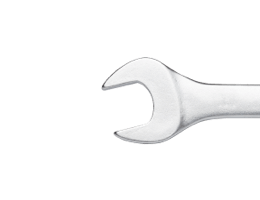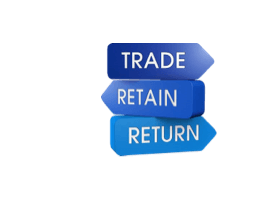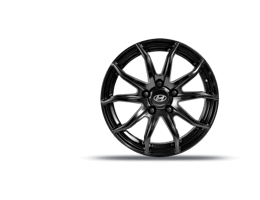Modern slavery statement.
This Statement is made by Hyundai Motor Company Australia Pty Ltd (Hyundai Australia) in accordance with section 13 of the Modern Slavery Act 2018 (Cth) (Act) and outlines the risks of modern slavery in Hyundai Australia's operations and supply chains, the steps taken to assess and address those risks and our approach to assessing the effectiveness of our actions. Hyundai Australia's reporting period is 1 January to 31 December 2024.
1. The reporting entity
The reporting entity is Hyundai Motor Company Australia Pty Limited (ABN 58 008 995 588). References in this statement to "we", "us", or "our" are to Hyundai Australia unless stated otherwise.
2. Structure, operations and supply chain of Hyundai Australia
Structure
Hyundai Australia is an Australian proprietary company, limited by shares. It is a wholly owned subsidiary of Hyundai Motor Company (HMC) - a company headquartered in Seoul, South Korea, and which forms part of the broader Hyundai Motor Group (HMG). Hyundai Australia does not own or control any other entities, either in Australia or abroad.
Operations
Hyundai Australia imports, promotes and distributes Hyundai and Genesis branded motor vehicles in Australia, and the Pacific region.
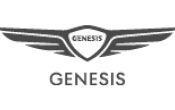 | 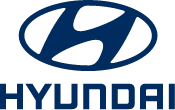 |
In the case of Hyundai branded motor vehicles, Hyundai Australia distributes the motor vehicles to a franchised network of independent Hyundai branded motor dealers across Australia.
In the case of Genesis branded motor vehicles, Hyundai Australia distributes the motor vehicles via its own network of Hyundai Australia owned retail outlets in Sydney, Melbourne, Gold Coast, Brisbane and Perth. Hyundai Australia sells Genesis branded motor vehicles directly to consumers from these wholly owned retail outlets and online.
During 2024, Hyundai Australia employed approximately 339 people across six core internal operating divisions including Corporate, Marketing, Sales, Aftersales, Genesis and Network Development.
Hyundai Australia's headquarters and registered office is in Macquarie Park, NSW. Hyundai Australia also has regional offices in Victoria, Queensland, South Australia and Western Australia and as at the date of this Statement there are approximately 166 independent franchised Hyundai dealerships across Australia.
Vehicle-related supply chain
Hyundai Australia's supply chain includes overseas and local Australian suppliers. Our key suppliers of motor vehicles, spare parts, accessories and various related goods and services are related entities of HMC and HMG in South Korea, Europe, United States of America and Australia. The largest category of spend is on the importation of motor vehicles from related entities in South Korea and Europe.
Various parts including minerals such as tin, tantalum, tungsten, gold, and cobalt are used in vehicles produced by HMC. Other minerals also include copper, silica, aluminium, lead and lithium.
| Mineral | Description |
|---|---|
| Conflict Minerals | |
| Tin |
|
| Tantalum |
|
| Tungsten |
|
| Gold |
|
| Other Minerals | |
| Cobalt |
|
| Mica |
|
In addition, the supply chain also includes labour in the engineering, production and assembly of the vehicles as well as labour in the transportation of the vehicles via road and freight.
Non-vehicle supply chain
Excluding the vehicles, parts and logistics services sourced from HMC related entities and payments to Hyundai Australia dealerships, the top 10 categories by spend value in 2024 are listed below:
- Marketing & Corporate Events Logistics
- Vehicle & Roadside Assistance Insurance
- Government
- Facilities
- IT
- Training
- Legal & Consulting
- Travel
Other categories of procurement spend included commercial cleaning services, construction and fit out services, training, EV chargers, finance, fleet, gifts, cybersecurity and cloud services, mechanical service, office supplies, promotional material, utilities and vehicle detailing.
3. Risks of modern slavery in our operations and supply chain
Risks in HMC's vehicle-related supply chain
As previously reported, Hyundai Australia considers that risks of modern slavery in supply chain primarily relate to the manufacture of motor vehicles and spare parts overseas, which are imported to Australia for distribution.
There are modern slavery risks, including forced labour and the worst forms of child labour associated with conflict minerals such as tin, tantalum, tungsten and gold mined and distributed through unethical means in conflict affected areas, namely the Democratic Republic of the Congo, the Republic of the Congo, the Central African Republic, South Sudan, Uganda, Rwanda, Burundi, Tanzania, Zambia, and Angola.
As reported in HMC's 2024 Sustainability Report, there is a possibility of human rights risks in Korea in terms of our suppliers' working conditions (salary, working hours, etc.), discrimination, workplace harassment, and collective bargaining right, freedom of association. Additionally, HMC determined that there is a potential for risks overseas in terms of forced labour, child labour, and discrimination against migrant/contract workers and women/children.
There are also modern slavery risks in the supply chain in automotive fuels, materials used in vehicle interiors, natural rubber in tyres, other automotive parts as well as in the shipping sector where seafarers face increased risks of modern slavery like conditions including debt bondage and forced labour.
Risks in non-vehicle supply chain
Hyundai Australia also recognises that there may be risks associated with a lack of visibility furtherdown the supply chain, along with risks associated with locally sourced goods and services. Some local suppliers of goods may supply goods that originate from other jurisdictions (such as, for example, computer equipment, monitors, corporate merchandise, uniforms etc).
In respect of goods and services sourced locally from within Australia, Hyundai Australia notes that Australia is classified as a jurisdiction with a lower prevalence of, and vulnerability to modern slavery according to the 2023 Global Slavery Index (GSI).
Despite the lower risk, the GSI estimates that approximately 1.6 per 1000 people in Australia or 41,000 people are living in situations of modern slavery. Industries in Australia that rely on vulnerable categories of workers such as those on temporary visas with limited English proficiency tend to have increased exposure to modern slavery risks. Commercial cleaning, car washes and detailing and hospitality are some of the sectors within our supply chain that may have higher risks of modern slavery by virtue of the workforce profile supporting businesses in these sectors.
Risks in our operations
Modern slavery is not a risk factor in our employment of people at Hyundai Australia as we comply with all applicable industrial relations regulations in Australia and the implementation of our workplace policies and procedures. Furthermore, 97% of Hyundai Australia employees are permanent employees of the company, 11 % of the Hyundai Australia workforce is covered by a Modern Award and no employee is under the age of 18 years (eliminating the risks associated with child labour).
4. Actions taken to assess and address the risks of mo.dern slavery, including approach to due diligence and remediation
HMC and HMG
Hyundai Australia's main suppliers are related entities of HMC and HMG. All such related entities are subject to published group wide policies and procedures including a Supplier Code of Conduct (Supplier Code) and Human Rights Charter.
The Supplier Code sets out HMC's expectations on several topics, including:
- Responsible procurement activities. Suppliers should establish a process to confirm, at all stages of the supply chain, the countries and regions of origin of raw materials, parts, and components directly or indirectly involved in the manufacturing of goods provided to HMG. Suppliers should not purchase any raw materials, parts, or components manufactured through the involvement of any type of forced labor.
- No child labour. Suppliers should ban all forms of child labour in their facilities 'unless specifically permitted by applicable law' and should not receive goods or services from business partners that are engaged in child labour.
- No forced labour. Suppliers should prohibit all forms of forced or mandatory labour and not receive goods or services from a business partner who is involved in forced labour.
- Non-discrimination and no harassment. Suppliers should not engage in any form of discrimination and establish policies and procedures to ensure that no human rights violations occur in the workplace.
- Wages and benefits. Suppliers should compensate workers in accordance with laws and paid in a timely manner.
- Working hours. Suppliers should comply with all applicable laws on working hours and overtime rates. All employees should receive on average at least one day off every week.
- Humane treatment. Suppliers should respect the privacy of all employees and refrain from assigning unnecessary overtime.
- Freedom of association. Suppliers should respect the rights of employees to associate and bargain collectively.
- Ethical recruitment. Suppliers should not withhold employees' access to personal documents or demand any recruitment fee in exchange for employment. Employees should be given written or verbal explanations regarding working conditions.
- Supply chain due diligence. Suppliers should establish supply chain due diligence procedures in accordance with the OECD Due Diligence Guidance for Responsible Business Conduct.
The Human Rights Charter states that HMG is committed to complying with a wide range of recognised human rights/labour-related international standards and guidelines, such as the Universal Declaration of Human Rights, UN Guiding Principles on Business and Human Rights and International Labor Organization Constitution and OECD Due Diligence Guidance for responsible Business Conduct, among others.
HMG continues to strive to make practical improvements, while also conducting annual due diligence across business sites and suppliers to identify both potential and actual human rights risks and implementing appropriate mitigation measures. More details regarding HMG's approach to human rights management and due diligence can be found on page 50 of the 2024 Sustainability Report.
Hyundai Australia
Hyundai Australia continues to have in place its Supplier Engagement Policy which explains the process for engaging third parties.
- Suppliers with a services/supply agreement with Hyundai Australia are required to comply with the Supplier Code and notify Hyundai Australia as soon as practicable of any breach of the Supplier Code.
- Suppliers may be requested to complete a questionnaire seeking information about their operations and the goods or services they supply to Hyundai Australia. The questionnaire asks suppliers to:
- describe their supply chain
- list sourcing countries
- describe policies and controls to assess and remedy modern slavery risks
- describe the risks of modern slavery in their own operations and supply chains
- identify poor labour practices
- describe sector and industry risks, product and services risks and geographic risks
- describe actions taken to assess and address risks
- describe how they protect human rights
- describe how they assess effectiveness of their actions
- describe the contractual arrangements with suppliers to guard against modern slavery
- describe what future actions are proposed to mitigate risks
- provide details of any responsible sourcing audits or certifications
In relation to its own operations, Hyundai Australia commenced the process of employee engagement surveys during 2024 which resulted in the achievement of the Great Place to Work Certification in 2025.
Company culture at Hyundai Motor Company Australia.
The employee experience at Hyundai Motor Company Australia, compared to a typical Australia based company.
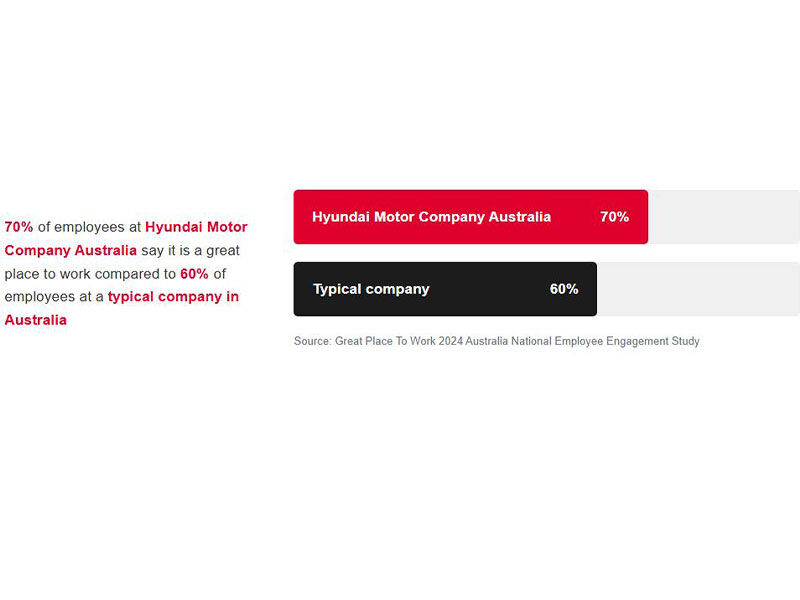

What is Great Place To Work CertificationTM?
Great Place To Work Certification~ recognises employers who create an outstanding employee experience.
It involves a two-step process that consists of surveying your employees and completing a short questionnaire about your workplace. The scores are determined based on the feedback received from employees and independent analysis.
This certification helps job seekers identify companies that genuinely offer a great company culture. It also gives employers a recruiting advantage by providing a globally recognized and research-backed verification of their commitment towards providing a great employee experience .
Approach to remediation
Hyundai Australia continues to support the reporting of any improper conduct. Hyundai Australia's Grievance Policy and Whistleblower Policy provide processes for, and protection of, individuals who raise any concerns.
HMG's approach to remediation is set out on page 54 of the 2024 Sustainability Report.
5. Approach to assessing the effectiveness of our actions
Hyundai Australia seeks to measure the effectiveness of our actions to mitigate modern slavery risks by setting new goals each year in an effort to mature our approach. The goals for 2025 are set out below:
- Provide modern slavery training for Hyundai Australia employees to increase awareness of modern slavery and the measures in place to mitigate modern slavery in our operations and supply chains.
- Revise our collection of supplier information to improve our ability to conduct preliminary assessments of inherent modern slavery risks based on industry classification.
- Incorporate modern slavery considerations as part of the supplier selection criteria and adopt an ongoing approach to assess compliance.
- Simplify the questions for suppliers as part of the modern slavery risk assessment.
- Issue the updated questionnaire to a supplier population following the results of the preliminary assessments.
- Engage with our car detailing service providers to ascertain the modern slavery risks associated with their workforce.
6. Approval and signature
This statement was approved by the board of Hyundai Australia and signed by Ted Lee, a director of the board.

Ted Lee
Director
06 June 2025
